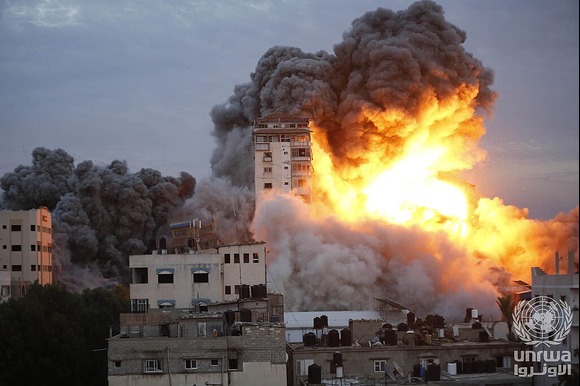ISTANBUL: Lebanese authorities have accused Israel of violating the ceasefire agreement in place since November 2024, after the Israeli army launched 12 airstrikes across southern and eastern Lebanon on Thursday, killing one person and injuring at least seven others.
Multiple Strikes Across Southern Lebanon
Lebanon’s National News Agency (NNA) reported that Israeli warplanes carried out two attacks on the southern town of Bnaafoul in Sidon, followed by another strike in Khirbet Dweir, located between the towns of Sarafand and Baysariyeh.
Additional bombings targeted an area between Roumine and Houmine in the Nabatieh district, while an Israeli drone strike hit Blida in the Marjayoun district as local residents were harvesting olives, according to the outlet.
The NNA further stated that the Israeli air force also struck parts of Sidon, Marjayoun, Bint Jbeil, and Baalbek in the east.
Panic and Destruction Reported
The agency described the attacks as producing massive explosions that sent shockwaves across the region. Residents reported powerful blasts and bright flashes that lit up the night sky and were visible from miles away, sparking widespread panic throughout southern Lebanon.
The Lebanese Health Ministry confirmed that one person was killed and seven others were injured in the latest wave of strikes.
Israel Claims Targeting Hezbollah Infrastructure
The Israeli army said its airstrikes were aimed at destroying Hezbollah weapons storage facilities in the Bekaa Valley and southern Lebanon. The strikes mark one of the most significant escalations since the ceasefire deal went into effect late last year.
Lebanese President Accuses Israel of Undermining Stability
Lebanese President Joseph Aoun condemned the attacks, accusing Israel of attempting to “destroy productive infrastructure and obstruct Lebanon’s economic recovery under false security pretexts.”
Aoun said Lebanon will increase its troop presence south of the Litani River to 10,000 by the end of 2025, as part of efforts to reinforce border security after Israel’s eventual withdrawal.
During a meeting with UNIFIL Commander Diodato Abagnara in Beirut, Aoun reaffirmed Lebanon’s commitment to fully implement UN Security Council Resolution 1701, pledging cooperation with the United Nations Interim Force in Lebanon (UNIFIL) to ensure stability.
He added that the Lebanese army would assume control of all areas currently under UNIFIL supervision as part of a gradual handover process scheduled to conclude by 2027.
Coordination for Post-Withdrawal Phase
Aoun also revealed that Lebanon is in talks with several international partners to coordinate the post-withdrawal phase, aiming to preserve peace and security across the country’s southern frontier.
Background: UN Resolution 1701 and the Ceasefire Agreement
Adopted in 2006, UN Resolution 1701 calls for a complete cessation of hostilities between Israel and Hezbollah, as well as the creation of a weapons-free zone between the Blue Line — the de facto border — and the Litani River. Only the Lebanese army and UNIFIL are permitted to operate within this zone.
The November 2024 ceasefire followed a year-long escalation of cross-border attacks between Hezbollah and Israel that began in October 2023. The conflict reached its peak by September 2024, when Israel launched a large-scale offensive that left over 4,000 people dead and 17,000 injured.
Under the truce terms, Israel was required to fully withdraw from southern Lebanon by January 2025, but it has only partially pulled out, maintaining military presence at five border outposts.
Ongoing Tensions Despite Ceasefire
Despite international calls for restraint, Thursday’s airstrikes underscore the fragile nature of the truce. Both sides have accused each other of violating the ceasefire, while the UN continues to urge full compliance with Resolution 1701 to prevent a return to open conflict.






